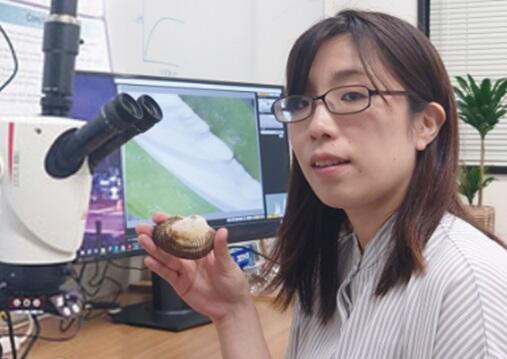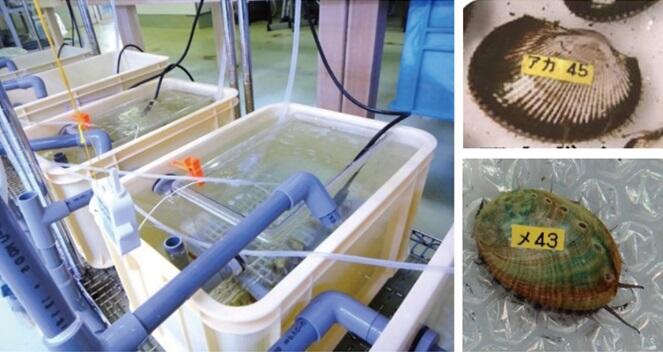
Associate Professor, School of Environment and Society, Department of Transdisciplinary Science and Engineering, Institute of Science Tokyo
Q1. What motivated you to become a researcher?
A1. Solving the mysteries of dinosaurs and paleontology
When I was a child, I saw the movie "Jurassic Park" and had a strong desire to become a dinosaur researcher. I was intrigued by the fact that organisms very different from those seen today lived in prehistoric times, and I felt that I wanted to unravel the mysteries of ancient organisms and the history of the earth. By the time I was in elementary school, I was thinking of pursuing a career in research. Later, in high school, I was a member of the broadcasting club and was involved in the production of video and radio programs, which made me interested in working as a film director and other creative professions. However, I eventually entered a university where I could study paleontology, which I had always loved.
In university, I was particularly interested in the evolution of paleontological organisms, and in the process, I came across a study that analyzed stable isotopes in organisms to determine the environmental history of organisms. Isotopes are atoms of the same element but with different mass numbers. By analyzing the isotopic ratios of calcium carbonate in fish skeletons and shells, it is possible to decipher the history of the environment in which the organisms lived and their ecological behavior. Although it was difficult to learn how to analyze the data, I enjoyed how new data emerged continuously, and I became increasingly involved in the research process.

Q2. What is the research topic that you are currently working on?
A2. Reconstructing temperature changes and investigating behavioral ecology
The theme of this research is the development of isotope analysis techniques to study the behavioral ecology of fish, squid, and other mobile organisms. One of our aims is to decipher the ecology and behavioral history of diverse organisms using "clamp isotope analysis technology," which can recover temperatures with higher precision than conventional analysis techniques.
In January 2025, the second state-of-the-art analyzer for clamp isotopes in Japan will be installed at the Institute of Science Tokyo. Although not many researchers in Japan are utilizing this technology, we aim to establish a high-precision isotope analysis technique utilizing this equipment in the future. We would like to create a center for isotope research where researchers from various fields can collaborate. At the same time, we would like to undertake efforts to disseminate the technology.
When stable isotope analysis provides detailed information on the habitats of organisms, it can elucidate the evolutionary process of organisms and changes in their habitats resulting from environmental changes that occurred in the past. By accumulating these data, it is also possible to predict the effects of future changes in sea-water temperature and other factors on living organisms. We also believe that understanding the behavioral ecology of migratory fish such as sardines and salmon can help conserve fishery resources.

Q3. What message would you give to aspiring researchers?
A3. Think around "what you want to solve"
As a researcher, I am consciously "thinking around the problem I want to solve" rather than thinking within the scope of my own field of expertise or the technology I currently have. The first step is to have a clear theme that you want to study. It is important to learn new skills if you need them and have the courage to dive in even if they are outside your area of expertise. If you cannot achieve this alone, you can work as a team. In addition, as I continue to advance my knowledge and skills, I sometimes come up with ideas that provide clues for my next research project. Hence, I try to keep on acquiring knowledge and skills steadily every day.
I hope that everyone who aspires to be a researcher in the future will devote themselves to whatever they enjoy doing, whether it be hobbies or studies, and have fun doing it. That experience will surely provide lessons for the future. The path of a researcher can be taken by anyone who has the desire to "give it a try," regardless of whether they like or dislike studying. When you find a field that you want to pursue, don't be afraid to take on the challenge.
(Article: Kayo Murakami)

Profile
Kozue Nishida
Associate Professor, School of Environment and Society, Department of Transdisciplinary Science and Engineering, Institute of Science Tokyo
Born in Aomori Prefecture, Japan. She graduated from the Department of Earth and Planetary Science, Graduate School of Science and Faculty of Science, University of Tokyo, in 2013 with a Ph.D. in Science. She has worked as a special researcher at the National Institute of Advanced Industrial Science and Technology; Postdoctoral Fellow of the Research Fellowship for Young Scientists of the Japan Society for the Promotion of Science at the Department of International Creative Engineering, National Institute of Technology, Ibaraki College; was dispatched to the Swiss Federal Institute of Technology; and then as a specially appointed assistant professor at the Institute of Life and Environmental Sciences at the University of Tsukuba. She has been in her current position since 2024. Further, she has been a FOREST researcher since 2023.




